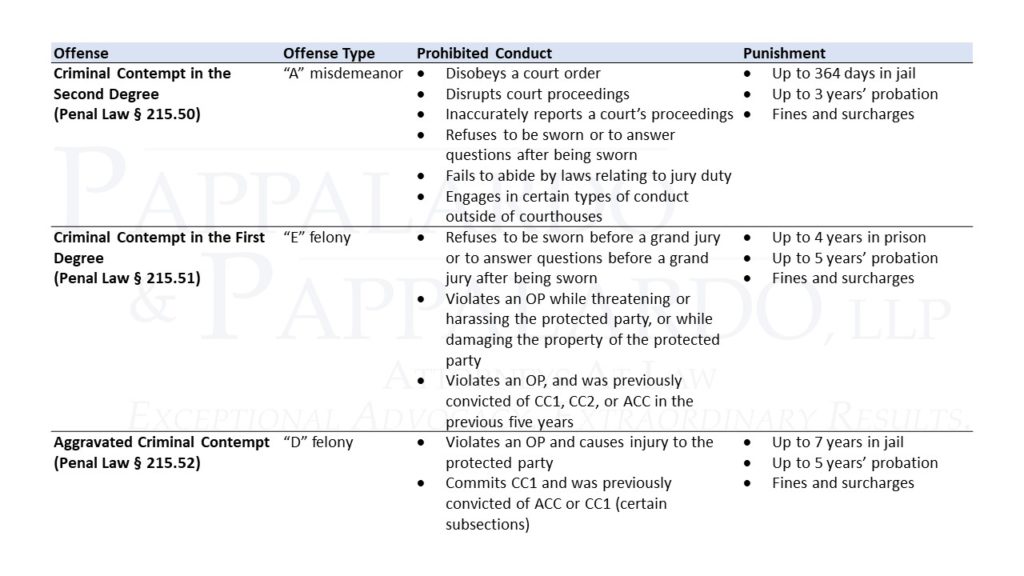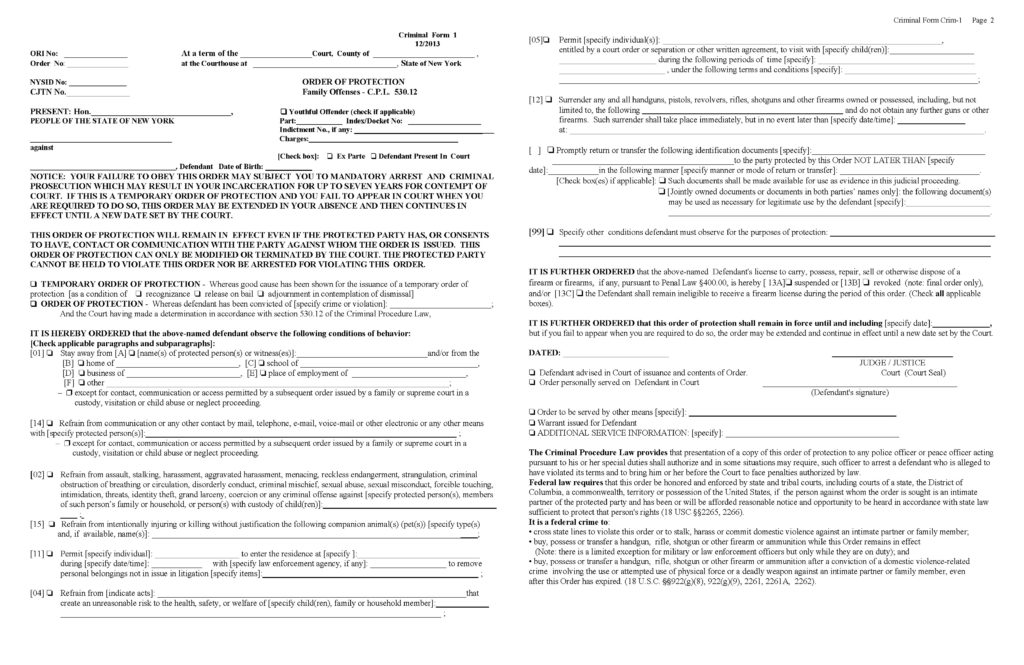Criminal Contempt & Violations of Orders of Protection in New York
Criminal contempt is a crime taken very seriously by both prosecutors and judges. Many times, it involves a defendant alleged to have contacted a victim of their previous crimes. And it always involves a defendant alleged to not have followed the orders of a court.
What Is Criminal Contempt?
Penal Law Article 215 lists various offenses – three of which deal with criminal contempt. Because the offense has varying degrees, it can be charged as a misdemeanor or a felony. And each offense carries a possibility of a criminal record and a punishment involving incarceration.
To understand the various degrees of this crime, refer to the following chart.
Abbreviations: CC1 – Criminal Contempt in the First Degree; CC2 – Criminal Contempt in the Second Degree; ACC – Aggravated Criminal Contempt; OP – Order of Protection
Violating an Order of Protection
The most common way that a defendant is charged with criminal contempt is violating an Order of Protection. Orders of Protection are issued to the alleged victims in criminal cases. And they are also often issued to the parties in matrimonial and family court proceedings.
The tricky part to defending this charge based on a violation of an Order of Protection? It’s usually a “did it happen, or did it not” kind of case. Meaning, if the defendant violated any of the several provisions in the Order of Protection, he/she is guilty. And it doesn’t matter why the defendant did it, or if there was an emergency, or any other excuse. Even if the victim is the one initiating the contact, the defendant will violate the Order of Protection by responding to the victim. As such, simply sending a text stating, “Please don’t contact me again. There is an Order of Protection,” can get a defendant convicted of criminal contempt.
Sometimes, particularly in domestic situations, the victim may wish to communicate with the defendant while the case is pending or thereafter. Or the victim and defendant may have children in common. In some cases, a victim can ask the judge to remove the “stay away” provision from the Order of Protection. For this reason, a good criminal defense attorney will be in close contact with the attorneys representing the parties in any matrimonial or family court proceedings.
Therefore, what should you do if you’re being accused of criminal contempt or have been arrested? Contact a criminal defense attorney as soon as possible. On the positive side, early intervention can often lead to better outcomes.
References:
- Penal Law Article 215. Available at: https://www.nysenate.gov/legislation/laws/PEN/P3TLA215 (last accessed Dec. 18, 2019).
- NYCourts.gov. “Domestic Violence Forms.” Available at: http://ww2.nycourts.gov/forms/familycourt/domesticviolence.shtml (last accessed Dec. 18, 2019).
- Office for the Prevention of Domestic Violence. “Orders of Protection (OPs) involving Members of the Same Family or Household.” Available at: https://opdv.ny.gov/professionals/criminal_justice/ops.html (last accessed Dec. 18, 2019).


